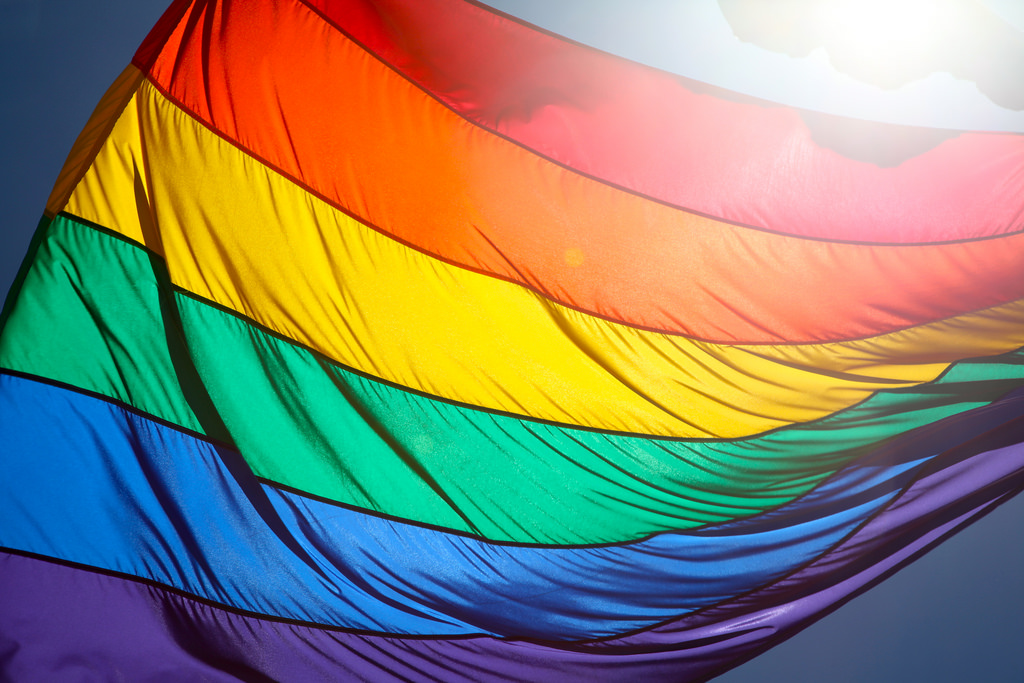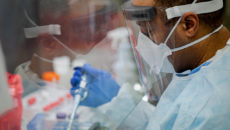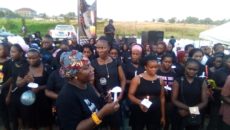MONROVIA, Montserrado – May 17 marks the International Day Against Homophobia, Biphobia and Transphobia, and members of the lesbian, gay, bisexual and transgender community in Liberia are using the opportunity to draw attention to how discrimination impedes their access to healthcare.
Members of the LGBT community say they are often denied basic treatment and other healthcare delivery services by health workers who see them as the antithesis to Liberian culture.
Quire Muertos, a sex worker and transgendered woman, disclosed in an interview that she has been denied treatment on several occasions by nurses at the John F. Kennedy Memorial and Redemption Hospitals because of her sexual and gender orientations.
“They always say that the reason we get sick is the way we chose to live, which God is against,†she said.
She said in addition to denying her treatment, health workers have also accused her and other members of her community of being the source of illnesses. Because of such discrimination and stereotyping, Muertos said LGBT people most often are afraid to visit health facilities.
As a sex worker, she said her case is even worse because the police have only not refused to protect her as a citizen, but she has been jailed for crimes of sodomy when she complained that a client physically assaulted her when she requested fees for sex services rendered.
Another transgender woman who only identified herself as Rico also told a similar story of having been assaulted by individuals and sometimes jailed by police officers.
“For me, I feel not bad – no guilt about who I am. I feel proud to be a transgender,†she noted, although she wished to live in a Liberia free of discrimination.
Another young member of the LGBT community, Jessica Conteh, said she was forced to drop out of school because her schoolmates could not tolerate her being a lesbian.
While out of school, she said she was also given notice by her landlord and forced out of her community because people believed she would convince other young girls in the community to become lesbians too. She is now squatting with a friend in a different community.
Before being chased out of her former community, Conteh explained that she had earlier been jailed when she carried a complaint about a dispute with a neighbor and that neighbor identified her to be a lesbian.
She said it is painful to be hated and discriminated against because of the way one lives his or her life.
May 17 was specifically chosen to commemorate the World Health Organization’s decision in 1990 to declassify homosexuality as a mental disorder.
The day is now celebrated in more than 130 countries, including 37 where same sex acts are illegal, with 1,600 events reported from 1,280 organizations in 2014.
Evans Adofo, the program director for Stop Aids in Liberia, a leading organizer of programs to celebrate the day in Liberia, said the national theme for the celebration is “Togetherness for Inclusion.â€
Adofo said the celebration would be led by a stakeholders’ dialogue among pro and anti-LGBT individuals, government officials, members of the community, and human rights organizations. He said they would discuss the vulnerability and marginalization of LGBT people as a result of discrimination and frame the challenge as a human rights issue.
“If you look at other issues around rights promotion, looking at access to health and justice, you notice that people who are found within the LGBT community are being marginalized,†he said. “They are vulnerable because we have laws in our constitution that says that these people do not exist, they are criminalized.â€
He said another objective for the celebration is to raise awareness around LGBT issues and increase advocacy among government and stakeholders to decriminalize the practices.
Adofo said despite the high prevalence of HIV among members of the LGBT community, access to healthcare for them is difficult because they are afraid of being arrested.
“We understand that the HIV prevalence is very high among members of the key population people or LGBT. But if you have laws that say they’re criminals, how will they access the services?†he said.
For his part, ActionAid Liberia’s communications officer, Khulekani Sibindi, said discriminating against members of LGBT community is also wrong because they too are Liberians.
Sibindi said often, those discriminating against a group of people may not know who they discriminate against.
“Because you might not know who you’re discriminating [against]. At the end of the day, you might discover the person you are discriminating [against] is your cousin,†he said.
The pastor of the Greater Refuge Baptist Church, Rev. Solomon Juah who is a fierce critic of LGBT in Liberia is among stakeholders invited to participate in the dialogue on the rights of members of the community.
Juah told journalists in an interview on Wednesday that he has accepted the invitation to attend the dialogue, but at the same time, he would take along a police officer to arrest anyone who shows up claiming to be a member of the LGBT community because the law does not support the practices in Liberia.
He said until the law preventing homosexuality and related practices in Liberia can be repealed, anyone showing up to one must be arrested and prosecuted.
“I hope they remain undercover because I will aggressively sue them,†he said.
According to him, LGBT practices are evil and can only be permitted in western nations like the United States, as it has “no place in the Liberian society.â€
“I look at them as offenders of this society because they are not good human beings,†he added. He said as a Christian, the bible which he believes terms people in the LGBT community as “dogs.â€
He said apart from being a Christian, his cultural orientation as an African does not give room for such practices.
Contrary to Juah’s assertion that homosexuality is un-African and an idea spread by westerners, the Guardian has reported that several scholars and anthropologists have found that anti-homosexuality laws across Africa came along with the advent of Christianity and Islam. The researchers say that in areas as far apart as Benin and Zimbabwe, there is evidence that suggests that the practice of homosexuality was present.
In Liberia, there is no law specifically criminalizing homosexuality, but there is a law against “deviate sexual intercourse,†which may not only be difficult to prove if it occurs between two consenting adults, but it also could include a host of sexual acts that even heterosexual individuals often engage in.
Featured photo by Flickr’s torbakhopper



